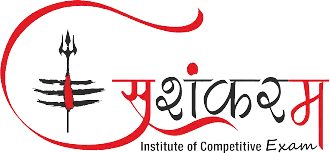The Ultimate Guide to Mastering Time Management for Competitive Exams
What Is Time Management ?
Time management is a critical skill for anyone preparing for competitive exams. Whether you’re aiming for the SSC CGL, UPSC, GRE, or any other high-stakes test, how you manage your time can make the difference between success and failure. This guide will provide you with strategies and tips to master time management and maximize your performance.
Understanding the Importance of Time Management
Competitive exams are designed to test not only your knowledge but also your ability to think and act quickly. Efficient time management allows you to:
- Cover the entire syllabus systematically.
- Allocate appropriate time to each section of the exam.
- Practice adequately, enhancing speed and accuracy.
- Reduce stress and increase confidence.
Steps to Master Time Management
1. Create a Realistic Study Schedule
A well-structured study schedule is the foundation of effective time management. Here's how to create one:
Assess Your Syllabus: Break down the syllabus into manageable parts. Identify topics that need more time.
Set Clear Goals: Define what you need to achieve each week and month.
Allocate Time Wisely: Assign more time to difficult subjects or topics. Ensure you also include time for revision.
Be Flexible: Adjust your schedule as needed, but ensure you meet your overall goals.
2. Prioritize Tasks
Not all study tasks are equally important. Use the Eisenhower Matrix to prioritize:
Urgent and Important: Focus on these tasks first (e.g., revising core concepts, practicing mock tests).
Important but Not Urgent: Schedule these tasks for regular study sessions (e.g., reading supplementary materials).
Urgent but Not Important: Delegate or minimize time spent on these tasks.
Neither Urgent nor Important: Avoid these tasks to save time.
3. Use Effective Study Techniques
Optimize your study time with these techniques:
Pomodoro Technique: Study for 25 minutes, then take a 5-minute break. After four cycles, take a longer break. This helps maintain focus and prevent burnout.
Active Learning: Engage with the material through practice problems, flashcards, and teaching concepts to others.
Spaced Repetition: Review information at increasing intervals to enhance retention.
4. Practice with Timed Tests
Simulate exam conditions by taking timed practice tests:
Set a Timer: Mimic the actual exam timing to build endurance and speed.
Review Performance: Analyze which sections took longer and why. Adjust your study plan to address these areas.
Gradual Improvement: Gradually reduce the time you allow yourself for each section to build speed.
5. Break Down Study Sessions
Long study sessions can be overwhelming. Break them into smaller, focused intervals:
Short Sessions: Study for 45-60 minutes, followed by a 10-15 minute break.
Topic Segmentation: Tackle one topic or chapter per session to maintain concentration.
6. Maintain a Healthy Balance
Your physical and mental well-being is crucial:
Exercise Regularly: Physical activity boosts brain function and reduces stress.
Healthy Diet: Eat balanced meals to sustain energy levels.
Adequate Sleep: Ensure 7-8 hours of sleep to enhance memory and cognitive function.
7. Minimize Distractions
Create an environment conducive to studying:
Designated Study Area: Choose a quiet, clutter-free space.
Turn Off Notifications: Keep your phone and other devices on silent.
Set Boundaries: Inform family or roommates of your study hours.
8. Use Technology Wisely
Leverage technology to aid your study process:
Educational Platforms: Utilize online resources, video lectures, and practice apps for efficient learning.
9. Regularly Review and Adjust
Periodically review your progress:
Weekly Reviews: Assess what you’ve accomplished each week and adjust your plan accordingly.
Mock Tests: Regularly take full-length mock tests to gauge your readiness and adjust your strategy.
Conclusion
Mastering time management is essential for excelling in competitive exams. By creating a realistic study schedule, prioritizing tasks, using effective study techniques, and maintaining a healthy balance, you can optimize your preparation. Regular practice with timed tests and periodic reviews will further enhance your performance. Remember, consistency and discipline are key. Stay focused, stay motivated, and success will follow.


